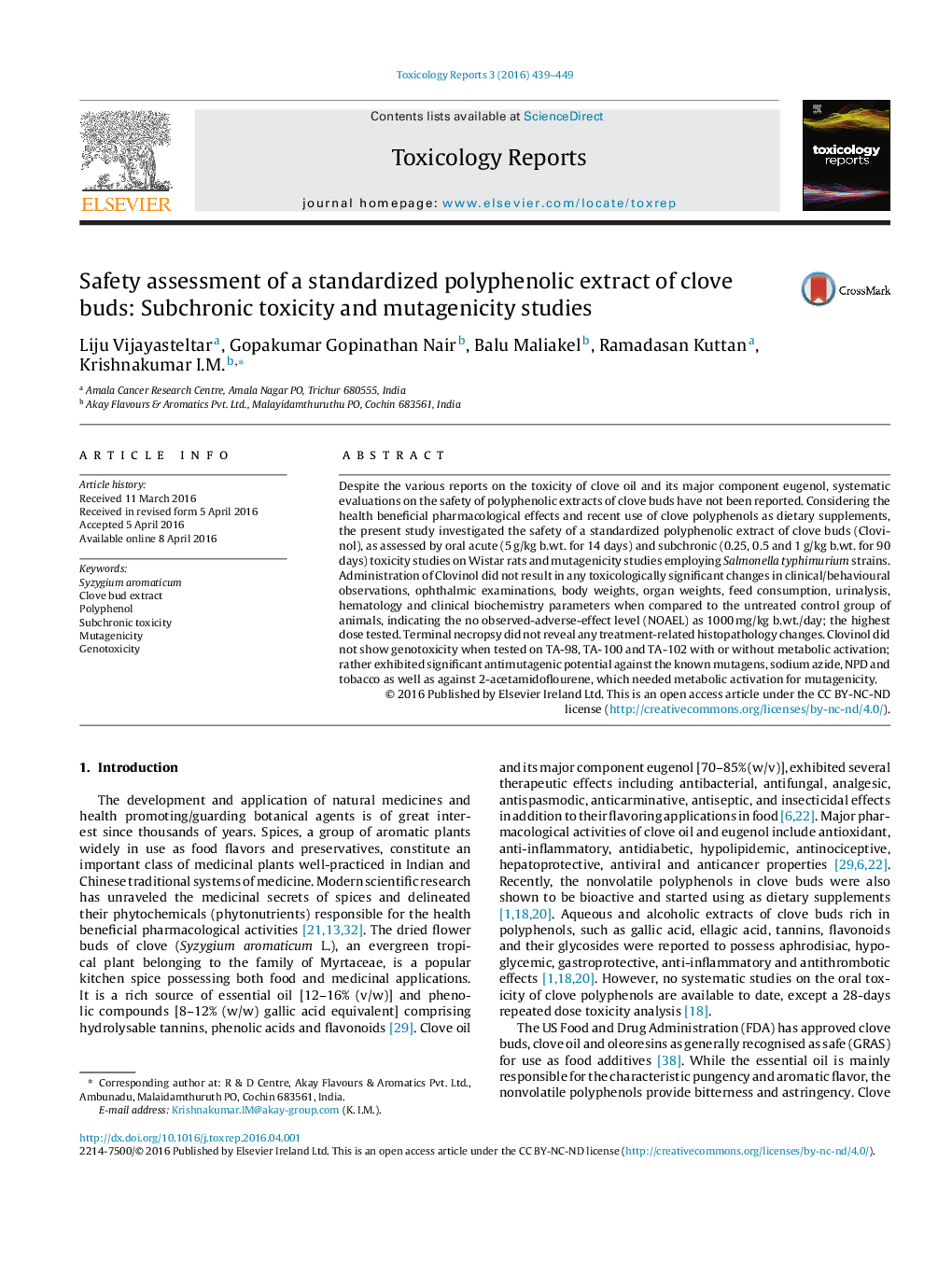| Article ID | Journal | Published Year | Pages | File Type |
|---|---|---|---|---|
| 2572150 | Toxicology Reports | 2016 | 11 Pages |
Despite the various reports on the toxicity of clove oil and its major component eugenol, systematic evaluations on the safety of polyphenolic extracts of clove buds have not been reported. Considering the health beneficial pharmacological effects and recent use of clove polyphenols as dietary supplements, the present study investigated the safety of a standardized polyphenolic extract of clove buds (Clovinol), as assessed by oral acute (5 g/kg b.wt. for 14 days) and subchronic (0.25, 0.5 and 1 g/kg b.wt. for 90 days) toxicity studies on Wistar rats and mutagenicity studies employing Salmonella typhimurium strains. Administration of Clovinol did not result in any toxicologically significant changes in clinical/behavioural observations, ophthalmic examinations, body weights, organ weights, feed consumption, urinalysis, hematology and clinical biochemistry parameters when compared to the untreated control group of animals, indicating the no observed-adverse-effect level (NOAEL) as 1000 mg/kg b.wt./day; the highest dose tested. Terminal necropsy did not reveal any treatment-related histopathology changes. Clovinol did not show genotoxicity when tested on TA-98, TA-100 and TA-102 with or without metabolic activation; rather exhibited significant antimutagenic potential against the known mutagens, sodium azide, NPD and tobacco as well as against 2-acetamidoflourene, which needed metabolic activation for mutagenicity.
